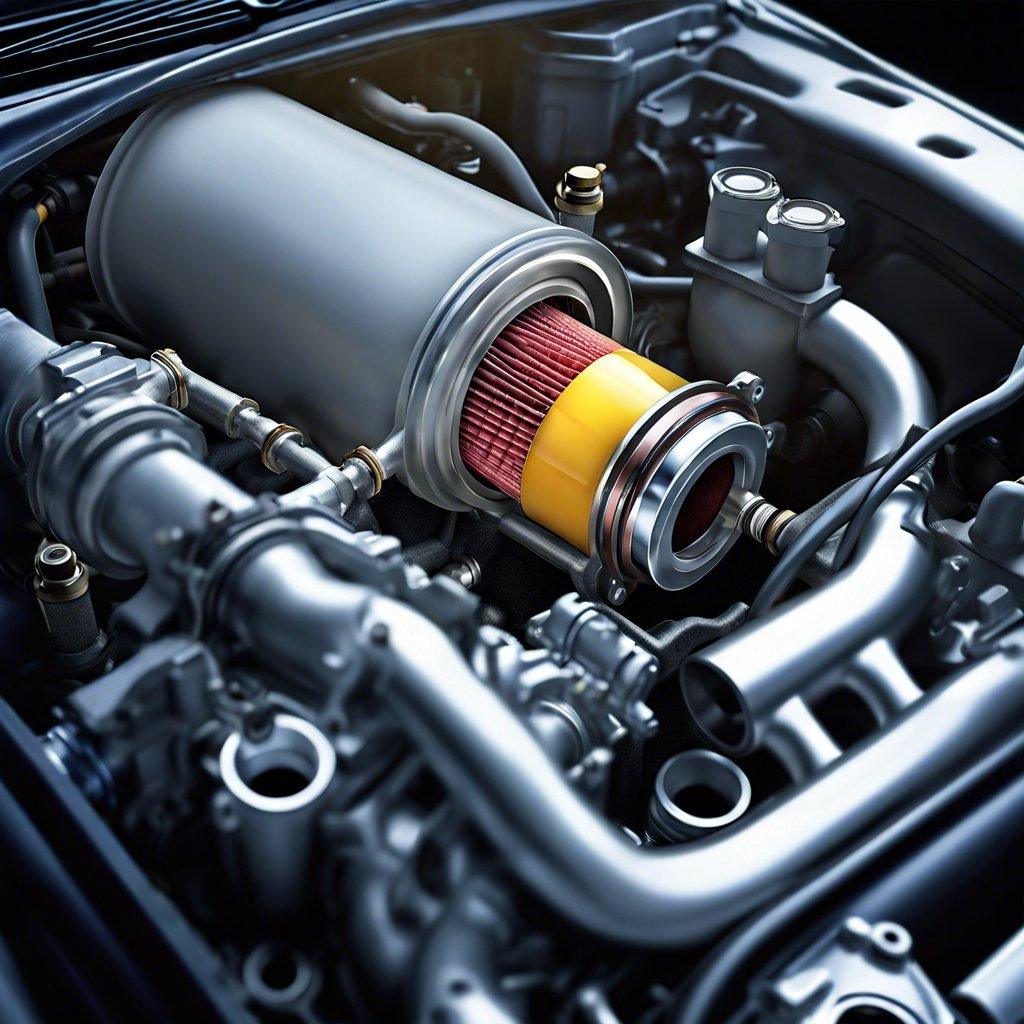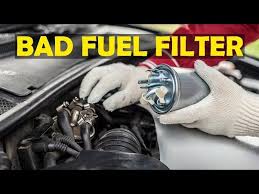When to Change a Fuel Filter: Timing Matters
Fuel Filter Replacement: Proactive Maintenance for Peak Performance

Maintaining Fuel System Efficiency
The fuel filter plays a crucial role in ensuring your vehicle’s engine operates at peak performance. As fuel flows through the system, the filter captures contaminants, debris, and impurities that could otherwise damage sensitive engine components. Replacing the fuel filter at the recommended intervals is essential for preserving fuel system integrity and preventing costly repairs down the line.
Recognizing the Signs of a Clogged Fuel Filter
A clogged or failing fuel filter can manifest in various ways, including:
- Decreased Fuel Efficiency: As the filter becomes obstructed, the engine must work harder to draw fuel, resulting in reduced fuel economy.
- Difficulty Starting the Vehicle: A clogged filter restricts fuel flow, making it harder for the engine to start, especially in cold weather.
- Hesitation and Stalling: Insufficient fuel delivery can cause the engine to hesitate, sputter, or stall during acceleration or under load.
Fuel Filter Replacement Intervals
Manufacturers typically recommend replacing the fuel filter every 30,000 to 50,000 miles, or as specified in the vehicle’s maintenance schedule. However, it’s important to consider factors such as driving conditions, fuel quality, and the age of the vehicle when determining the appropriate replacement interval.
| Driving Conditions | Recommended Replacement Interval |
|---|---|
| Normal | 30,000 to 50,000 miles |
| Severe (e.g., dusty, off-road) | 15,000 to 30,000 miles |
Fuel Filter Replacement Procedure
Replacing the fuel filter is a straightforward process that can be performed by a skilled technician or a do-it-yourself mechanic. It’s important to follow the manufacturer’s instructions and use the correct replacement filter to ensure proper fit and function.
Proactive fuel filter replacement is a simple and cost-effective way to maintain your vehicle’s fuel system and optimize engine performance. By staying vigilant and addressing potential issues before they become major problems, you can extend the lifespan of your vehicle and avoid costly repairs.
Unlocking Engine Efficiency: The Optimal Time to Swap Your Fuel Filter
Maintaining Peak Performance: The Importance of Fuel Filter Replacement
The fuel filter plays a crucial role in ensuring the optimal performance and longevity of your vehicle’s engine. As the gateway between the fuel tank and the engine, the fuel filter acts as a sentinel, trapping impurities and contaminants that could otherwise wreak havoc on delicate engine components. Knowing when to change this unsung hero of your car’s health can mean the difference between a well-oiled machine and one that sputters and struggles.
Identifying the Signs: When to Swap Your Fuel Filter
The recommended interval for fuel filter replacement can vary depending on your vehicle’s make, model, and driving conditions. As a general guideline, most manufacturers suggest changing the fuel filter every 30,000 to 50,000 miles, or at least once a year. However, certain factors can accelerate the need for a swap, including:
- Frequent driving in dirty or dusty environments
- Prolonged use of low-quality or contaminated fuel
- Noticeable decrease in engine performance or fuel efficiency
The Consequences of Neglect: Unmasking the Risks
Putting off fuel filter replacement can lead to a host of problems, from decreased fuel economy and power output to severe engine damage. A clogged or dirty fuel filter restricts the flow of fuel to the engine, causing it to work harder and consume more fuel. This not only results in higher operating costs but also puts unnecessary strain on critical engine components, potentially leading to costly repairs down the line.
Unlocking the Path to Peak Performance
By proactively replacing your fuel filter at the recommended intervals, you can ensure your engine operates at its best, delivering optimal power, efficiency, and longevity. This simple yet essential maintenance task can help maintain the overall health of your vehicle, safeguarding your investment and providing a smoother, more enjoyable driving experience.
| Symptom | Potential Cause |
|---|---|
| Decreased Fuel Economy | Clogged Fuel Filter |
| Reduced Engine Power | Restricted Fuel Flow |
| Rough Idling or Stalling | Insufficient Fuel Delivery |
Remember, the key to unlocking your engine’s full potential lies in staying proactive with fuel filter maintenance. By keeping a close eye on your vehicle’s performance and adhering to the manufacturer’s recommended replacement schedule, you can ensure your car runs smoothly, efficiently, and reliably for miles to come.
Maximizing Fuel Economy: Identifying the Right Moment to Change Your Fuel Filter
Understanding the Role of Fuel Filters
Fuel filters play a crucial role in maintaining the efficiency and performance of your vehicle’s engine. These filters are designed to remove impurities, contaminants, and debris from the fuel, ensuring a clean and consistent flow of fuel to the engine. Neglecting to replace your fuel filter at the appropriate intervals can lead to a range of issues, including reduced fuel economy, decreased engine power, and even potential damage to the fuel injection system.
As your vehicle accumulates mileage, the fuel filter gradually becomes clogged with accumulated debris and contaminants. This can manifest in several ways, including:
- Reduced Fuel Efficiency: A clogged fuel filter can restrict the flow of fuel, forcing the engine to work harder to draw the necessary fuel, resulting in a decrease in overall fuel economy.
- Hesitation or Stalling: A restricted fuel flow can cause the engine to hesitate or stall, particularly during acceleration or under heavy load conditions.
- Difficulty Starting: A clogged fuel filter can make it challenging for the engine to start, especially in cold weather or after the vehicle has been sitting for an extended period.
Determining the Optimal Fuel Filter Replacement Interval
The optimal fuel filter replacement interval can vary depending on a number of factors, including the manufacturer’s recommendations, the type of driving conditions, and the quality of the fuel being used. As a general guideline, it is recommended to replace the fuel filter every 30,000 to 50,000 miles, or as specified in your vehicle’s owner’s manual. In some cases, more frequent replacements may be necessary, particularly if you frequently drive in dusty or contaminated environments.
Prioritizing Fuel Filter Maintenance
Maintaining your vehicle’s fuel filter is an essential part of keeping your engine running at its best. By identifying the right moment to change your fuel filter, you can maximize your fuel economy, extend the lifespan of your engine, and ensure a smooth and reliable driving experience. Remember to consult your owner’s manual and consider the driving conditions in your area to determine the optimal replacement schedule for your fuel filter.
| Symptom | Potential Cause |
|---|---|
| Reduced Fuel Efficiency | Clogged Fuel Filter |
| Hesitation or Stalling | Restricted Fuel Flow |
| Difficulty Starting | Clogged Fuel Filter |
Understanding the Fuel Filter’s Role
The fuel filter is a crucial component in your vehicle’s fuel system, responsible for trapping impurities and contaminants before they reach the engine. Over time, as the filter becomes clogged with debris, it can impede fuel flow, leading to a range of performance issues and even engine damage.
Factors Influencing Fuel Filter Lifespan
The lifespan of a fuel filter can vary depending on several factors, including:
- Driving Conditions: Vehicles operated in dusty, off-road, or high-mileage environments may require more frequent filter changes.
- Fuel Quality: Poorer quality fuels, or those containing higher levels of impurities, can accelerate the filter’s clogging rate.
- Vehicle Age and Mileage: Older vehicles or those with high mileage typically require more frequent fuel filter replacements.
Recognizing the Signs of a Failing Fuel Filter
Paying attention to the following symptoms can help you identify when it’s time to replace your fuel filter:
- Reduced Fuel Economy: A clogged filter can restrict fuel flow, leading to decreased engine efficiency and lower fuel mileage.
- Engine Hesitation or Stalling: Insufficient fuel delivery can cause the engine to hesitate, struggle to accelerate, or even stall.
- Difficulty Starting the Engine: A severely restricted fuel filter can make it challenging to start the engine, especially when the vehicle is cold.
Recommended Fuel Filter Replacement Intervals
While manufacturer recommendations vary, a general guideline for fuel filter replacement is:
| Vehicle Type | Replacement Interval |
|---|---|
| Gasoline-powered vehicles | Every 30,000 to 50,000 miles |
| Diesel-powered vehicles | Every 20,000 to 30,000 miles |
It’s important to note that these are general guidelines, and you should always refer to your vehicle’s owner’s manual for the manufacturer-recommended replacement interval.
Fuel Filter Replacement: A Proactive Approach
Replacing your fuel filter at the appropriate intervals is a proactive maintenance step that can help ensure the longevity and optimal performance of your vehicle’s engine. By staying vigilant and addressing fuel filter issues promptly, you can avoid costly repairs and enjoy a smooth, reliable driving experience.




Post Comment